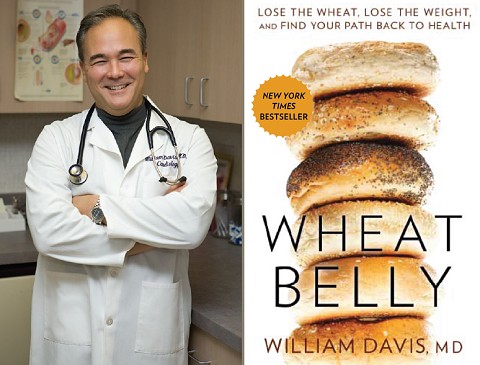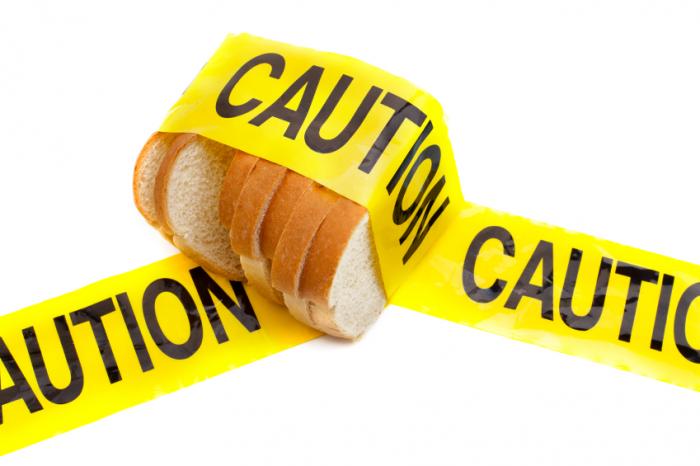TOM BROADLEY explores the drawbacks of going gluten-free.
At the heart of recent debates surrounding health and diet lies gluten, a protein famed for its – apparently disregarded – health drawbacks. Gluten is a protein found in wheat, barley, and rye that humans have been cultivating and consuming for thousands of years. It has been at the centre of diets around the world for years, so why have so many people suddenly decided to veto it?
One of the most prolific anti-gluten evangelists is Dr William Davis. Davis has argued that sensitivity to gluten is ‘one of the greatest and most under-recognised health threats to humanity’. Moreover, he claims that various scientific research centres and food corporations have deceived the general population, leading us all to see whole grains as beneficial to our health. The general grain consensus is that highly processed grains, those used in white bread and pasta, are largely unhealthy, as they break down into glucose very quickly, which can lead to diabetes. However, their whole grain counterparts are, perhaps paradoxically, seen as healthy. This is apparently due to their high incidence of fibre and the ‘B vitamins thiamin, riboflavin, and niacin.’ Yet Davis argues that the established research supporting this view is unfounded and misleading. His website boldly declares that ‘grains are a mistake!’ and the ones we consume on a regular basis are ‘no longer traditional strains, but Franken-grains created by genetics research and agribusiness.’
Worth noting are Davis’s plethora of Wheat Belly books advertised alongside his anti-gluten jargon, all of which claim to aid dramatic weight loss. William Davis is only one example of the corporate interest that lies behind the gluten-free craze. News website Food Manufacture predicts that the UK gluten-free dieting industry is likely to grow by £561 million by 2017. Only a few decades ago, similar claims were being made that naturally occurring fats, the likes of which are found in everyday products like butter, were especially damaging. Such assertions fed the emergence of the huge low-fat food industry that has since presented itself as a panacea for health problems. However, the low-fat produce the same industry offers as an alternative is so high in sugar that it merely diverts the issue. I fear this may forecast the fate of the current gluten-free trend.

Despite the aforementioned claims, there is no substantial evidence that reasonable quantities of gluten are damaging to the health. Food research is a tricky area and no conclusive consensus has been reached regarding gluten. Peter R.H. Green, a researcher at Columbia University’s Celiac Disease Centre, has informed WebMD that, although many consider a gluten-free diet to be healthier, this view is entirely unfounded. He added that ‘unless people are very careful, a gluten-free diet can lack vitamins, minerals, and fibre.’ It seems that going gluten-free allows people the illusion of healthy-eating, even if this is not the case. While there are other elements to grains such as FODMAPs (also present in vegetables) that can be harmful, Green warns that rapidly and thoughtlessly overhauling one’s diet can be much more detrimental.
Gluten really is a problem, however, for sufferers of coeliac disease. For coeliacs, the consumption of gluten triggers an autoimmune response that can wreck the lining of the intestine and, in turn, lead to the malabsorption of nutrients and even cancer. Sufferers have to keep a constant eye on everything they eat for fear of such a reaction, something perhaps made to seem trivial by the new gluten-free fad. Marina Keegan gives an insight into this in her posthumous book of essays, The Opposite of Loneliness, saying: ‘Apparently, I’m super trendy. I’m the new Vegan. I’m the hip new diet that’s sweeping San Francisco and Williamsburg … the Daily Beast featured an article last summer on its popularity amongst Hollywood stars. I think they’re crazy.’ Coeliac disease itself is under-diagnosed across the UK, so if eating a slice of pizza makes you curl up in pain with food poisoning-like symptoms, a trip to your doctor might be in order.

With regards to gluten, the jury is still out. If you really feel that minimising your gluten consumption is making you feel better, then do it, but be wary of missing out on vital nutrients. Blaming gluten for all health quibbles, however, is foolish. Every person’s digestive system is unique and reacts differently to different things; it is unlikely that we are all negatively impacted by gluten. The gluten-free fixation can be seen as akin to the debunked Atkins and grapefruit diets: heavily marketed quick-fix ways of slimming down or getting healthier that are ineffective in the long-term. While food researchers continue to look into gluten’s true health implications, the best path to improved health is to focus on a balanced diet rather than one single protein.




